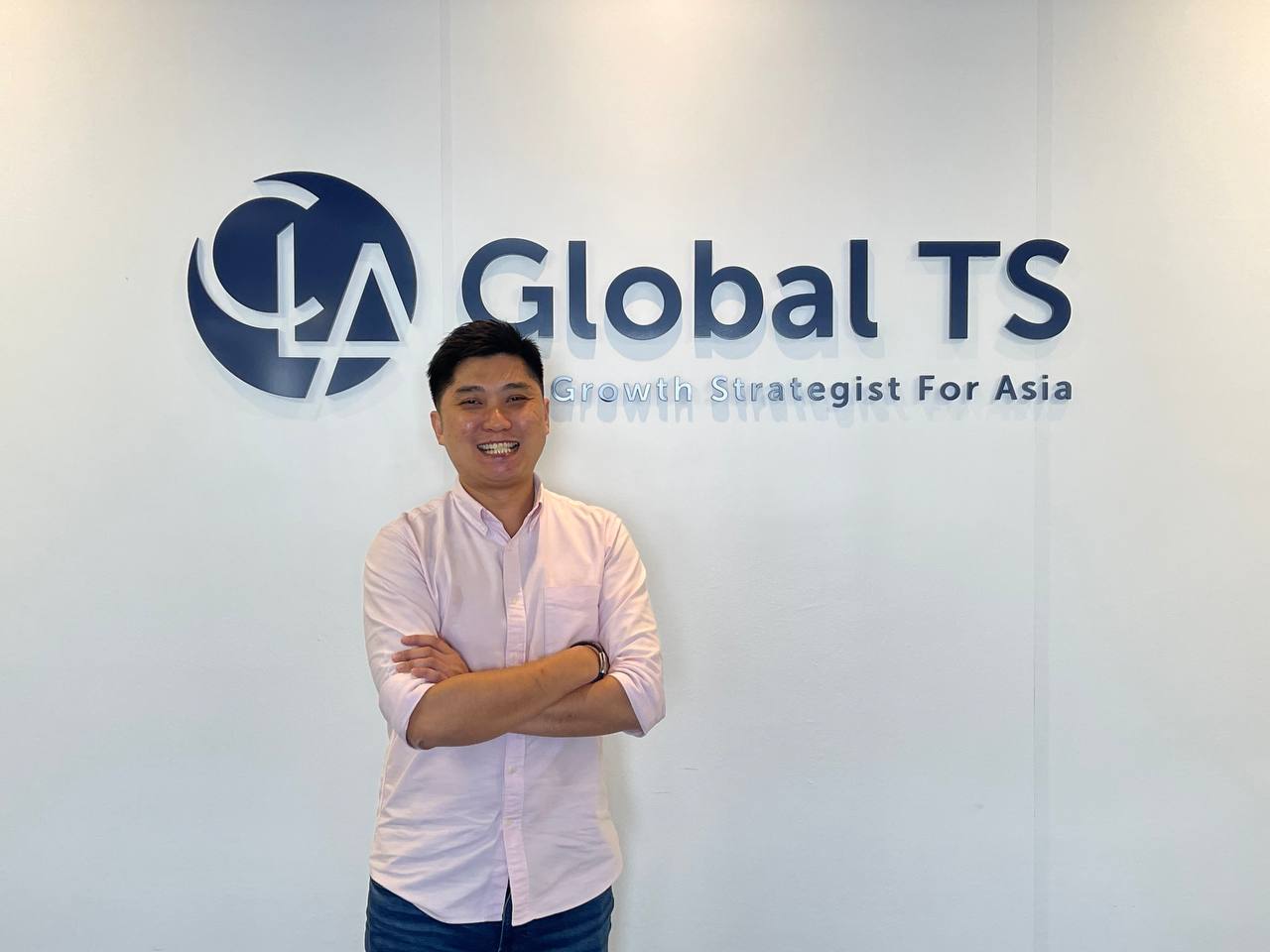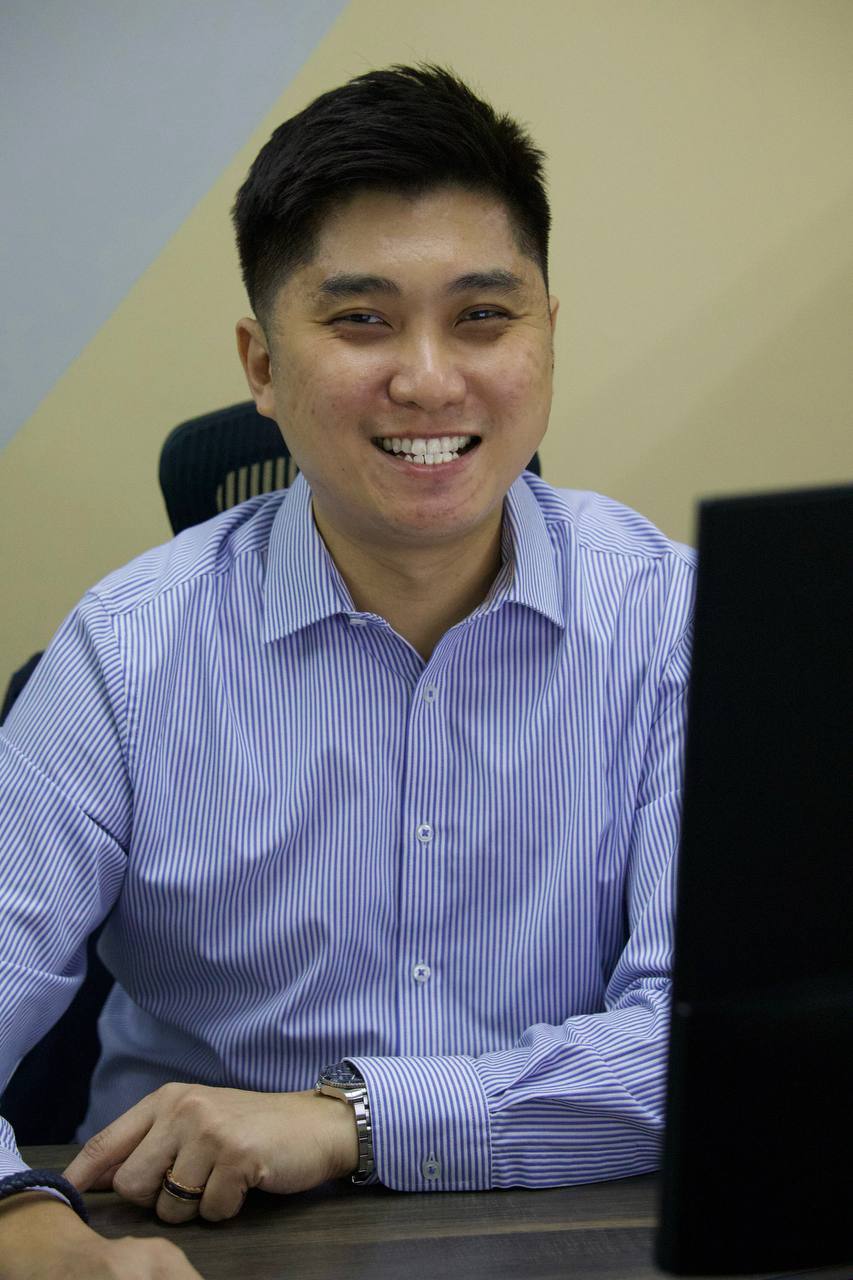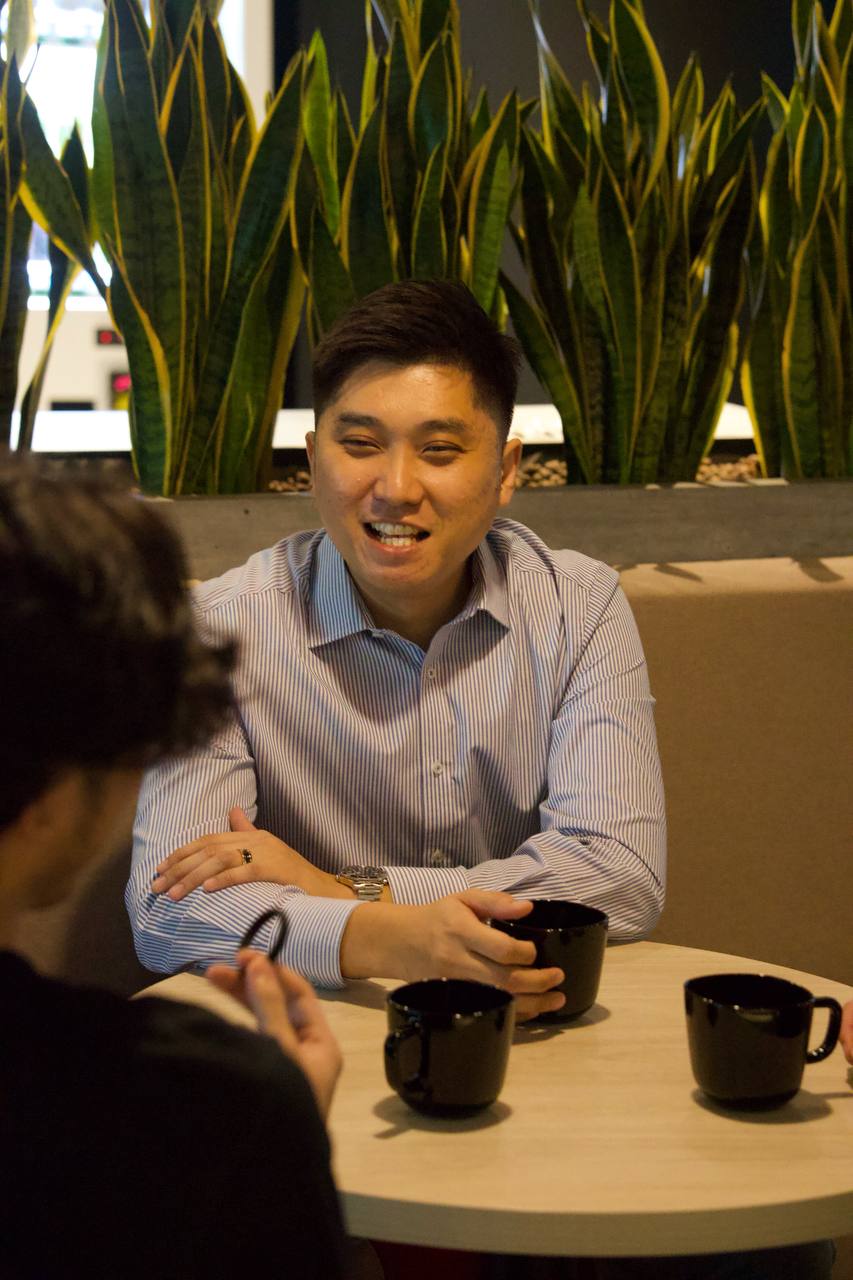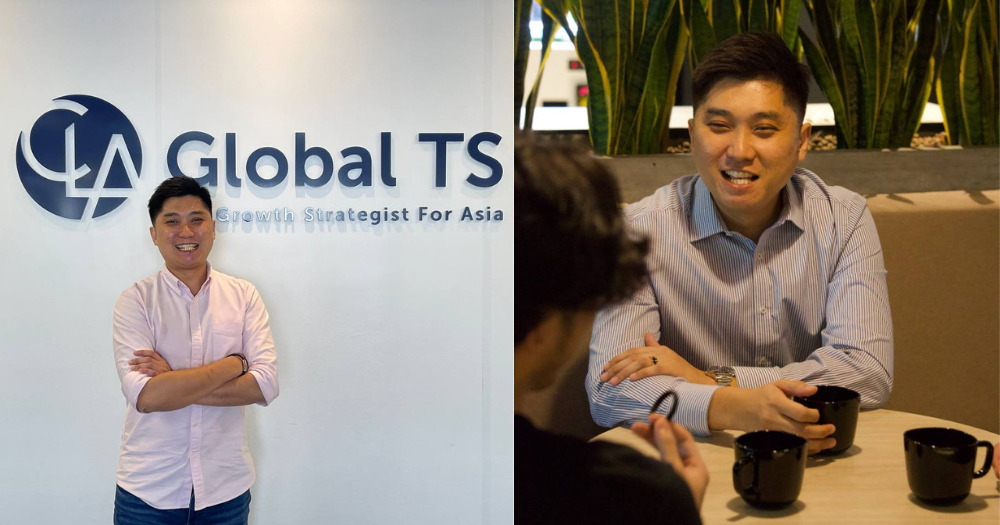With the rise of Artificial Intelligence (AI) tools like ChatGPT and Bard, there’s been an insidious fear that such technologies will replace humans in jobs.
A November 2023 study analysed the impact of generative AI on over 5,000 jobs in Australia, Brazil, India, the US and UK.
It found that generative AI poses the greatest risk to white-collar roles, as these often involve repetitive tasks that can be automated.
In India, this technology can replace 46 per cent of the tasks that accounting and bookkeeping clerks do, as well as 28 per cent of the tasks that accountants carry out.
This might sound like a death knell for the role, but one accountant in Singapore thinks otherwise.
Samuel Lim, who works as an assurance director at CLA Global TS Public Accounting Corporation, works with his team to carry out audits of financial statements.
 Photo courtesy of Samuel Lim
Photo courtesy of Samuel Lim
“[Humans] are still relevant”
Crunching numbers, reconciling transactions and record keeping are examples of some common tasks that accountants do daily.
These tasks may be perceived to be easily replaceable by technology and machines, but Lim doesn’t display much apprehension about the impending threat of AI.
“I truly believe that in my lifetime, AI would be able to carry out certain tasks autonomously,” he told Mothership.
Nevertheless, the 39-year-old believes there are functions that AI can never replicate.
“Unless AI is able to, among other things, interpret the nuances of human interaction and communication and achieve human-like cognition that grants it the ability to exercise judgement, I believe we are still relevant,” Lim opined.
“Afterall, businesses will still be owned by people, operated by people to deliver goods and services consumed by people,” he added.
The binary nature of AI
And while there is a certain “anxiety” that surrounds the capabilities of such technologies and the possibilities of job loss and human obsolescence, as the Scientific American puts it, Lim remains undaunted by the power of technologies, such as AI, machine learning and digital tools.
In fact, he shares that such technologies “excite [him] the most” and thinks that it will instead be able to benefit accountants and improve the efficiency of job processes.
One way Lim said this can play out in the accounting world is the way technology can detect errors made when drafting financial statements through the use of AI and OCR (optical character recognition) enabled tools.
However, “it is up to us, human beings, to act appropriately with the information we have been provided with,” Lim shared.
This includes making decisions on, for example, the consequences an employee should face if a mistake was made when on the job — something which requires a certain amount of empathy and value judgement.
“We have the ability to understand cultural differences, human emotions and circumstantial situations.
AI could easily propose recommendations on the appropriate consequences for the mistakes made but a human could possibly find out whether the mistake was unintentional and if the offender is remorseful.”
Lim concludes that he does not believe that the binary nature of AI has the capacity for “grace, forgiveness and generosity” yet.
Instead, he sees technology such as AI as opportunities for working professionals to explore how they can remain not just relevant, but integral, in this ever-changing world.
 Photo courtesy of Samuel Lim
Photo courtesy of Samuel Lim
Digital tools
AI is just one of the wide array of digital tools that Lim utilises in his job.
He confesses that some tools that his younger colleagues were already using took him some effort to learn.
One software, Datasnipper, is used to help check for mathematical accuracy and internal consistency within financial statements.
Another common software used in accounting firms is CaseWare, which helps auditors document, store and record the audit procedures carried out, as well as the audit evidence obtained.
Prior to CaseWare, everything was recorded physically on paper, which as one can imagine, would be a challenge to trawl through.
A digital tool called d’Sign by Dedoco, which is built on the blockchain, also helps users to obtain verifiable assurance of documents that are digitally signed on the platform.
“With d’Sign, we can now sign documents from anywhere in the world,” Lim shared of the software’s boons.
Not only can the various softwares help automate and simplify processes in his job, they have greatly improved the day-to-day workflow, helping Lim make better use of his time.
Where previously a typical day in Lim’s job as an auditor involves reviewing audit files, and writing out review notes on a memo pad, he is now able to type out his notes online and tag each remark to a specific location within CaseWare, as well as assign a specific team member to address the matters raised.
Gone are the days where his team members had to figure out which areas of the audit file that Lim’s memo pad notes were referring to, or decipher his “terrible handwriting”.
“I have more space on my desk now,” he quipped, as the audit files are now stored digitally.
However, he feels the biggest challenge the team faces when it comes to digital tools is making sure that all his teammates are familiar with them, and use them faithfully. Lim said:
“There isn’t really much value to use any digital solutions if any team member is not using them. It will not serve any purpose but to divide the engagement team and make us less efficient and effective in what we do.”
Discipline and integrity
Contrary to what some might believe, being proficient in mathematics isn’t necessarily the case for all accountants.
Lim shared that back when he was schooling, he got an A1 for Mathematics D and a B3 for Additional Mathematics for O-Levels, and a B for A-Level Mathematics.
Not too shabby, but he confessed that he wasn’t really a “mathematics enthusiast”.
Nevertheless, he conceded that he really benefited from the logical and critical thinking traits that the subject instils in a person.
For those who wish to follow in Lim’s footsteps but still find his grades intimidating, you would be glad to know that Lim feels that discipline and integrity, instead, are two of the most important traits that accountants, or prospective ones, need to possess.
To him, these traits cannot be replaced no matter the innovation.
“No amount of technology at the moment can replace a person’s discipline and integrity. Even with all the tools available, discipline in completing the tasks we have to the best of our abilities is of utmost importance.”
Ultimately, accounting, according to Lim, is as the word suggests, about the practice of accountability, and this is where discipline and integrity are indispensable.
“Because with discipline and integrity, we can earn the trust of others. And with that trust, we must be accountable and responsible to not misplace that trust,” Lim explained.
“Discipline, integrity and the practice of being accountable were and are relevant, and will continue to be relevant, even in the world of AI. Wouldn’t it be chaotic if no one or nothing can be trusted?”
 Photo courtesy of Samuel Lim
Photo courtesy of Samuel Lim
More about CPA Australia
Lim is a member of CPA Australia, one of the largest professional accounting bodies in the world that offers a professional certification programme, training, technical support and advocacy to its members.
He feels CPA Australia provides updates on current developments and trends, and is a resource for him to fall back on, as well as to arm himself with knowledge to make better decisions in his career.
If you are keen to learn more about AI and gain insights into the latest business trends, you can do so by joining webinars and online courses offered by CPA Australia.
And if you’re embarking on a career in the accounting and finance industry and want to make yourself stand out, you can consider becoming certified by the accounting body.
Find out more about the benefits of joining CPA Australia and its programme here.
This is a sponsored article by CPA Australia.
Top photo courtesy of Samuel Lim
If you like what you read, follow us on Facebook, Instagram, Twitter and Telegram to get the latest updates.

